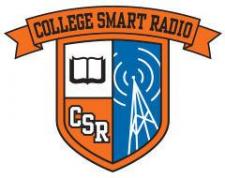Seniors: Do the Right Thing!
Posted on Mon, 12/16/2013 - 15:28
Seniors: Do the Right Thing!
For those of you who have applied under early action, rolling admission, or restrictive early action and been admitted -- Congratulations!
We now encourage you to do the right thing. If you know you will not enroll at some of the other colleges on your list, don’t apply to them. Go back through that original list and cross off those schools. Or, if you’ve already sent in your applications, let those colleges know your plans.
Don’t collect trophies in the form of admission letters from colleges you will never attend.
There are some exceptions to this rule. Some colleges very much want to make their case to you even if you have been admitted to another college under rolling admission, early action, or restrictive early action. If there are schools on your list you can still imagine you might attend, feel welcome to keep your options alive provided you are open to the case those colleges will make. And if you need to compare financial aid or merit scholarship awards, you will definitely want to proceed with applications to the other schools on your list.
As you can see, this isn’t simple. But matters of integrity rarely are. Think carefully, and for any school where you would just be collecting another acceptance letter, let that college know your decision as soon as possible so they can offer your seat to another student who wants to attend.
When Choosing a College: How close to home is too close?
Posted on Mon, 12/16/2013 - 12:40
Jane Kulow joins us again this month to talk about a factor that is central to most students' decisions -- location, location, location. Read on to learn more about what happens when students decide to study close to home and Kulow's advice for making it work.
How close is too close when it comes to choosing a college -- for students and parents?
My husband drove our son, Pete—a second-year University of Virginia (UVa) student—back to college Sunday evening after Thanksgiving. The drive takes between ten and fifteen minutes, depending upon traffic. Meanwhile a Midwestern nephew drove a couple of hours back to his college in St. Louis, and our niece flew back to her college in Los Angeles from her home near Boston.
Early Notifications: What to do next if you're accepted, deferred or denied
Posted on Fri, 12/13/2013 - 09:03It's decision time for students who have applied early action (EA), early decision (ED) or restrictive early action (REA) with the news soon to arrive via email or snail mail. Once you receive your notification, there are still some steps to be taken. We've outlined these next steps for students under every scenario -- acceptance, deferral or denial.
An Inspiration Playlist for Finishing Your Applications
Posted on Wed, 12/11/2013 - 11:27
For seniors heading down the homestretch with your college applications, we're re-blogging our inspiration playlist for motivation, de-stressing, or just contemplating the big changes your future will bring. Whether you're bogged down and need to be pumped up to finish that last essay or are looking to stay strong while you wait for your decisions, there should be something for everyone on this list -- from Eminem and Daft Punk to Rascal Flatts and Bon Jovi.
So listen up and keep moving or just get your head in a better place…
Students with a Learning Difference: Should you write about it in your essay?
Posted on Wed, 12/11/2013 - 10:56
Educational psychologist Jane McClure, who is widely respected for her work with students with learning disabilities, returns this month with more advice on the college application process for students with a learning difference or Attention Deficit/Hyperactivity Disorder. Read on for her excellent advice on when and where students should write about a learning difference or disability in their college essays, including guidance on how to effectively write such an essay.
Juniors: Finish the Semester Strong
Posted on Tue, 12/10/2013 - 08:58
Juniors, as the semester winds down and thoughts of winter break begin to dance in your head, remember to continue to give your best effort in all your classes and finish strong. Grades have been consistently rated as the top factor in admission decisions by colleges for the past decade. In the most recent State of College Admission report from the National Association for College Admission Counseling, 84 percent of colleges reported grades in college prep courses as decisive. One more time for emphasis: the grades you earn and the classes you take are important -- and grades in your junior year can be critical. For now, focus your efforts in the classroom… Winter break will be here soon.
Check out Chapter 5 in College Admission: From Application to Acceptance, Step by Step for more information about what defines a challenging curriculum and achieving balance between grades, challenging courses, and personal time.
Seniors: Questions You May Want to Ask in a College or Alumni Interview
Posted on Tue, 12/10/2013 - 08:49
Seniors, over the next weeks, you may be doing interviews at the colleges or, over the holidays, with local alumni. Remember, the interview is a conversation, not a test. But you should prepare. It is likely that at some point in any interview, you will be asked if you have any questions and the general rule is to ask questions that cannot be answered via advance homework -- for example, by perusing the FAQs page of the college's website. Here are some ideas for questions that you may want to ask:
What kinds of students are most successful at College X?
What do you like about College X?
Most colleges have a specific personality that goes beyond its academic offerings. How would you describe College X's personality?
Is there a type of student who is smart and well prepared but who would be happier at a different kind of place? Why or why not?
And, in addition, for alumni:
Why did you choose College X and what did you like about it? What would you have changed if you could have? What surprises did you experience? How has the campus changed?
Our Financial Aid Checklist -- Part II
Posted on Mon, 12/09/2013 - 13:18
Today, we're pleased to bring you Part II of a checklist of tasks you should be tackling right now to pay for college, courtesy of College Advisor Alice Kleeman. Admission deans, financial aid officers and college counselors agree that the single biggest mistake families make in the college application process is failing to apply for financial aid. So even if you think you won't qualify, apply. Use this checklist to make sure you are eligible for ALL the aid you may qualify for.
* Most importantly, do apply for financial aid to be sure you are considered for all assistance available. You may be pleasantly surprised. And, sometimes, even though you don't qualify for federal aid, you need to file the Free Application for Federal Student Aid (FAFSA) in order to be considered for merit scholarships, state aid and federal student loans.
* Check with your high school counselor about financial aid workshops scheduled at your school or in the community and attend with your parents!
College Admission on College Smart Radio
Posted on Thu, 12/05/2013 - 14:30
Christine VanDeVelde will be talking all things college admission with host Beatrice Schultz on College Smart Radio, 1220 AM KDOW, the Wall Street Business Network, this Saturday. Tune in at 3 p.m. PT to learn more about the biggest mistake families make in the college application process, creating a list of colleges, and college visits -- and find out if it's really true that "It's impossible to get into college today!" Never fear, it's not, though that's not what most headlines would have you believe...
Juniors: Just Do It!
Posted on Wed, 12/04/2013 - 10:47
Students -- and parents -- are constantly asking us what colleges want to see students doing outside of the classroom. Volunteer work, student government, a sport, a club? Here's the answer: There is no resume of activities that will guarantee admission to college. You can be involved in soccer, band, debate, robotics, hold a part-time job, have a consuming hobby like cooking or have family responsibilities like caring for younger siblings. But colleges do want to see you do something. If you are sitting on the couch playing video games all day, colleges will not regard that as a positive -- unless you're designing video games.
So this week's advice is: Just do it! Remember, colleges are looking at what you do outside the classroom to understand who you are, but also to understand what you will contribute to the community once you’re on campus. And at this point in your high school career, you may also want to take the initiative and consider a leadership position in whatever activity most interests you.







